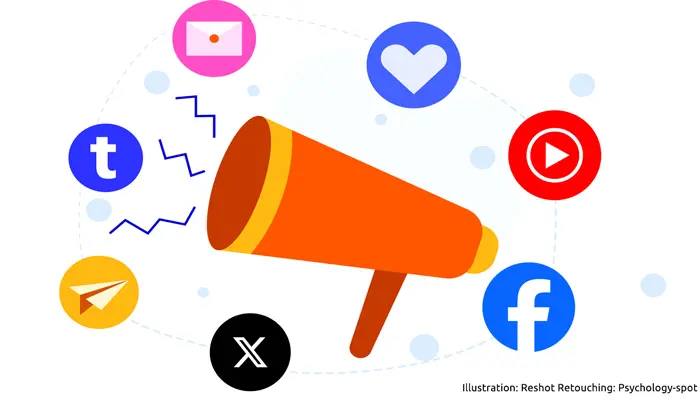
We are different, we have different values, goals and interests, which shines through our way of communicating, also in social networks. In fact, we do not all use social networks in the same way or for the same purposes, as revealed by a very interesting study conducted at the University of Rutgers. These researchers believe that social networks are basically made up of two types of people: “meformers” and “informers.”
According to their study, the 80% of social network users are meformers and only 20% are informers. Each one communicates completely differently, uses his social networks with dissimilar objectives and establishes different relationships with his contacts and followers.
Who are the informers?
Traditionally, self-consciousness has been referred to self-knowledge, but psychologist Tasha Eurich believes that there are actually two types of self-consciousness. There would be an inner consciousness, which is one that allows us to capture and understand our emotions and thoughts, and an outer consciousness, which would allow us to understand how others perceive us.
In fact, there are people who, although they have an extraordinary inner harmony, are not fully aware of how the others see them. There are also people who, although they are aware of how the others perceive them, do not have a great inner vision.
According to this psychologist, only a small percentage of people are fully aware of their inner states and the perception that the others have. These are people who have developed a balanced awareness between inside and outside. The interesting thing is that these people also use social networks differently, basically to inform and share valuable and useful information, both for themselves and for a large majority of people. They are the informers.
According to researchers at Rutgers University, reporters often use social networks to share different types of information, opinions, articles or images that are interesting or curious for the community. The reporters are communicative, respond to other users and usually have a greater number of followers, probably due to the interest generated by the content they share.
Often these are also people who produce original content. In fact, it is estimated that only 1% of the people who use the Internet create content while the rest is dedicated to consuming it, often without interacting.
Another study conducted at the University of Brunel revealed another characteristic of the informers: those who usually share eminently intellectual content have also greater mental openness; that is, they are more open to new ideas and experiences, as well as to discuss different topics.
Who are the meformers?
Approximately 80% of people are meformers; that is, those who are dedicated to publish about themselves. Their profiles on social networks are a kind of digitized diary that they share with the world.
They usually publish the places they go, what they eat, what they do and who they are with at all times. They are people who pour their daily life in social networks with a highly egocentric approach, sometimes falling into narcissistic tendencies.
In fact, researchers at Brunel University provide more details about the characteristics of these people. They discovered that those who publish more frequently, mainly about their social activities and daily life, tend to be more outgoing people. However, those who consistently published about their achievements and progress had more narcissistic features and needed external validation.
Although meformers tend to have fewer followers, usually half that of the informers, since they are limited to their network of friends, these people also tend to develop a stronger bond with their contacts.
Sources:
Romagnoli, G. (2019) Psicologia dei social: esistono “2 tipi di persone” che comunicano online… tu quale sei? In: Psinel.
Marshall, T. C. et. Al. (2015) The Big Five, self-esteem, and narcissism as predictors of the topics people write about in Facebook status updates. Personality and Individual Differences; 85: 35-40.
Naaman, M. et. Al. (2010) Is it Really About Me? Message Content in Social Awareness Streams. Proceedings of the ACM Conference on Computer Supported Cooperative Work.Savannah: Georgia.



